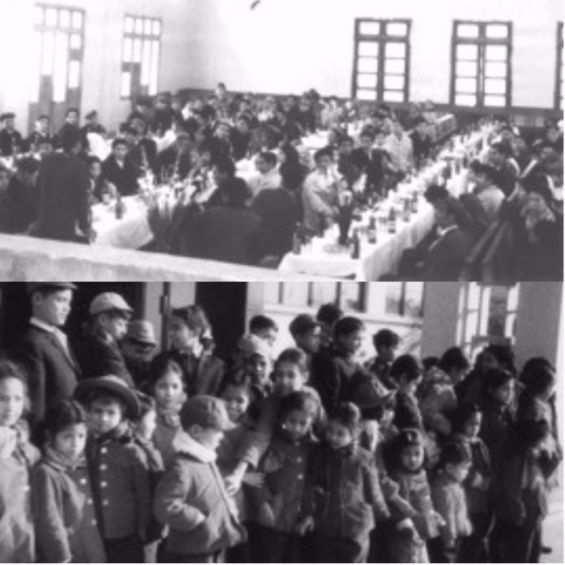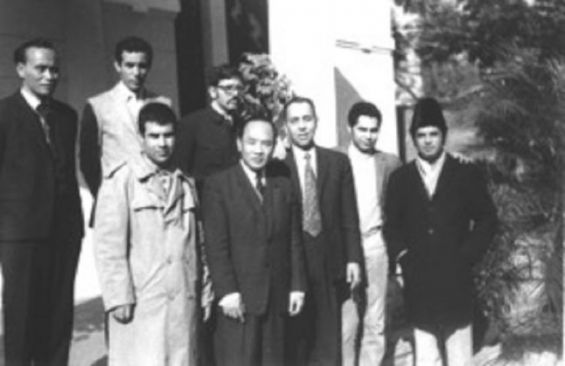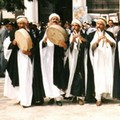We are here today, to shed light on a forgotten part of Morocco’s history, a story that resembles a Hollywood movie. 125 Moroccan soldiers escaped the French army during the Indochina war in Vietnam. Fleeing death, these soldiers were forgotten by the government for several years. From 1954 to 1972, they lived in Vietnam, married Vietnamese women and had children. Others chose to lead extremely precarious lives drowning slowly but surely in madness, constantly thinking of home, Morocco. Only 85 Moroccan nationals later succeeded in joining their country, accompanied by their wives and about 260 children.
Mokhtar Ouldammar, was working as head of the social services at the Ministry of Foreign Affairs in 1972, when he stumbled upon a pile of letters that changed his life ever since. «By chance, I received a package of letters that was sent from Beijing, China», he told Yabiladi. As soon as he opened it, the retired official discovered calls for help.
«The package was voluminous with tons of letters, but it was forgotten and put on one of the shelves of the Foreign Ministry’s offices».
One of the letters attracted Ouldammar’s attention. It was signed by Ho Chi Minh, the former Vietnamese president and addressed to King Mohammed V. The Asian Head of State contacted the sovereign to ask him to repatriate a number of Moroccan nationals who stayed in Vietnam after the end of the war. «There were other Algerian, Tunisian, and Senegalese deserters, and the list goes on. They had all been repatriated by their governments, especially after they gained independence. But the Moroccan deserters were completely forgotten», adds Mokhtar Ouldammar. «What was weird is that this letter, instead of being sent to the royal palace, was sitting in the Ministry’s archives».
 Ph : Mokhtar Ouldammar
Ph : Mokhtar Ouldammar
Reacting to the situation, the 82-year-old man assigned himself with the task of forming a delegation to visit Hanoi and arrange a meeting with the Moroccan deserters. The first Moroccan soldiers to desert did so in 1954, and eventually the number grew by 1972. «They stayed there for years. Some of them got married to Vietnamese women and had children. 65 Vietnamese women decided to come to Morocco with their husbands and children. The rest of the nationals were single. I learned later that there were ten children whose Moroccan fathers had died. Unfortunately, we did not know about them. They stayed with their families and their mothers. Some deserters –two or three- were suffering from mental illnesses, tuberculosis and dysentery».
Going back home
Once in Hanoi, it took the Vietnamese authorities a few days to bring together the Moroccan nationals. It was a joyful day. When members of the Moroccan delegation arrived, deserters and their families hugged them. «They were telling, did you not bring a piece of Morocco with you, we wanted to feel our country», Mokhtar Ouldammar said. He added : «the children shouted ‘ammi, ammi’ (uncle in Moroccan Arabic). It was a very intense moment».
After examining their situation individually, the retired official was marked by the story of one of the Moroccan deserters. He asked why he decided to desert. The man was embarrassed by the question but replied saying as Ouldammar insisted : «With three of my comrades, we ate our captain». The deserter explained that the Frenchman treated him alongside other Moroccans badly. «The situation at the moment, the intensity of the war and the racist behavior of our commanders had transformed us into killing machines», he clarified. After this incident the man simply deserted.
Following their meeting, the Moroccan deserters had to wait. «The Vietnamese representative from the Ministry of Interior had drawn our attention to the fact that we had to identify each of them in the provinces of origin. We thought it would take three months, but finally it ended up lasting for four to five months», Mokhtar Ouldammar recalled. Finally, everything was ready for repatriation, tickets were booked and suitcases were packed.
 A Moroccan deserters who talking on behalf of other soldiers./Ph. Mokhtar Ouldammar
A Moroccan deserters who talking on behalf of other soldiers./Ph. Mokhtar Ouldammar
«Suddenly, we received a phone call from the head of the Minister’s cabinet saying that we had to stop the operation», adds the same person. Without explaining why the operation was suspended, the Moroccan delegation was left to disappointment.
«I thought the decision came from Hassan II, but later I learned that the foreign Minister, back then, had been arrested by the king who asked why Moroccan nationals weren’t repatriated. His majesty was therefore aware personally of the deserters’ story», said Mokhtar Ouldammar. At that time, «panic was all over the place», and the director of the Foreign Ministry’s cabinet called the diplomat to start the repatriation process as soon as possible.
«We never knew who or how the order had been given to interrupt the operation before. It remains a mystery to me and to those around me».
In January 1972, the 85 deserters were finally repatriated to the kingdom. «It was done on the sly», said Mokhtar Ouldammar, who took part of an important chapter of these Moroccan deserters’ story.





 chargement...
chargement...













